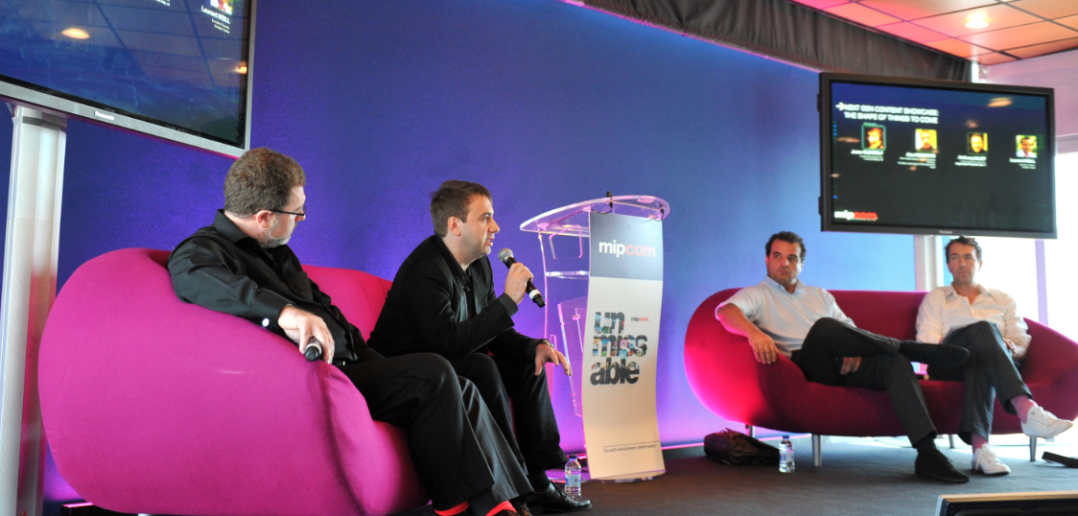The undercurrent of this session seemed to be what makes the difference between a community manager and a broadcaster. Is there a difference at all?
Lilley addressed the core of this question directly: in matters of transmedia success or failure, “This is still just about talent spotting. There aren’t many people with native experience of multi-platform content.”
Lilley: “I never, ever do sessions about the future. Focusing (solely) on the technologies really won’t lead to good thinking. Look carefully instead at behaviours of people we formerly knew as ‘the audience’.”
People are changing, and with them their expectations for technology. Weill illustrated this with the case of “Money Drop” in France, you can participate in the game show from home as if you are onstage. “This is changing TV!” Weill exclaimed.
He elaborated more on this later with what he called the Trojan Horse. Content operates a lot like this: you use it as your Trojan horse to get people addicted, then monetise using play-later models and sponsorship.
“In most cases, interaction during shows will be free. But there will be the play-anytime”, where money gets made. “You can play along during ‘Money Drop’ if you buy a Nestlé product,” Weill explained. “So yes it’s free, but not really, and it’s good for the sponsor too.”
“The entire commercial model with (social gaming giant) Zynga is paying for things you could get free if you wait long enough,” Lilley added, and Weill concurred.
“The way you monetise with freemium has changed gaming, and it will also change social TV,” Weill said.
Medeiros elaborated. “Every night a new episode of Breaking Bad runs. The most downloaded episode is still the first one” – and each time somebody downloads a new episode, that’s one more supporter for the entire Breaking Bad franchise – opening immense opportunities for engagement and sales, not just of spinoff content but of DVD box sets.
“But a lot of the content people will consume will be variations of classic content,” Medeiros said. What’s changing are the new ways of forming relationships, which “will spread it around.”




